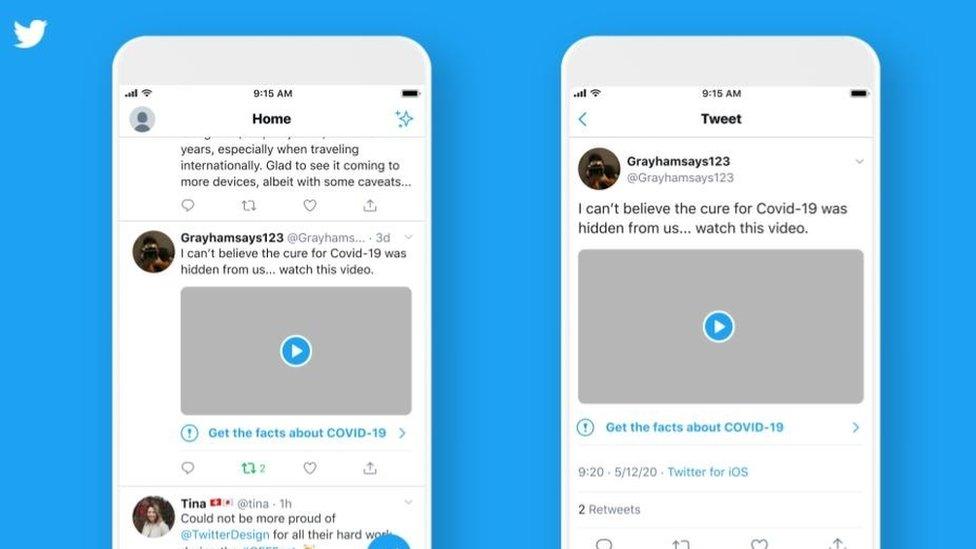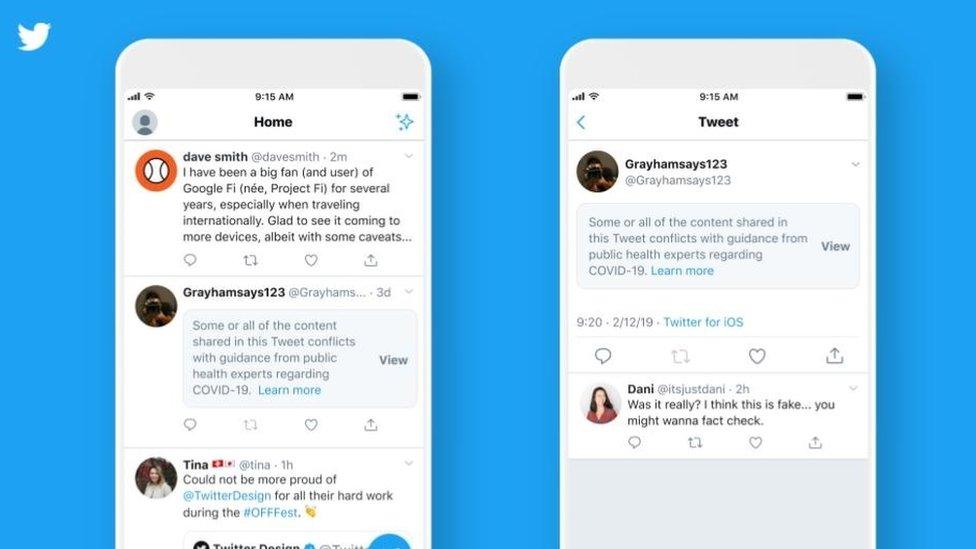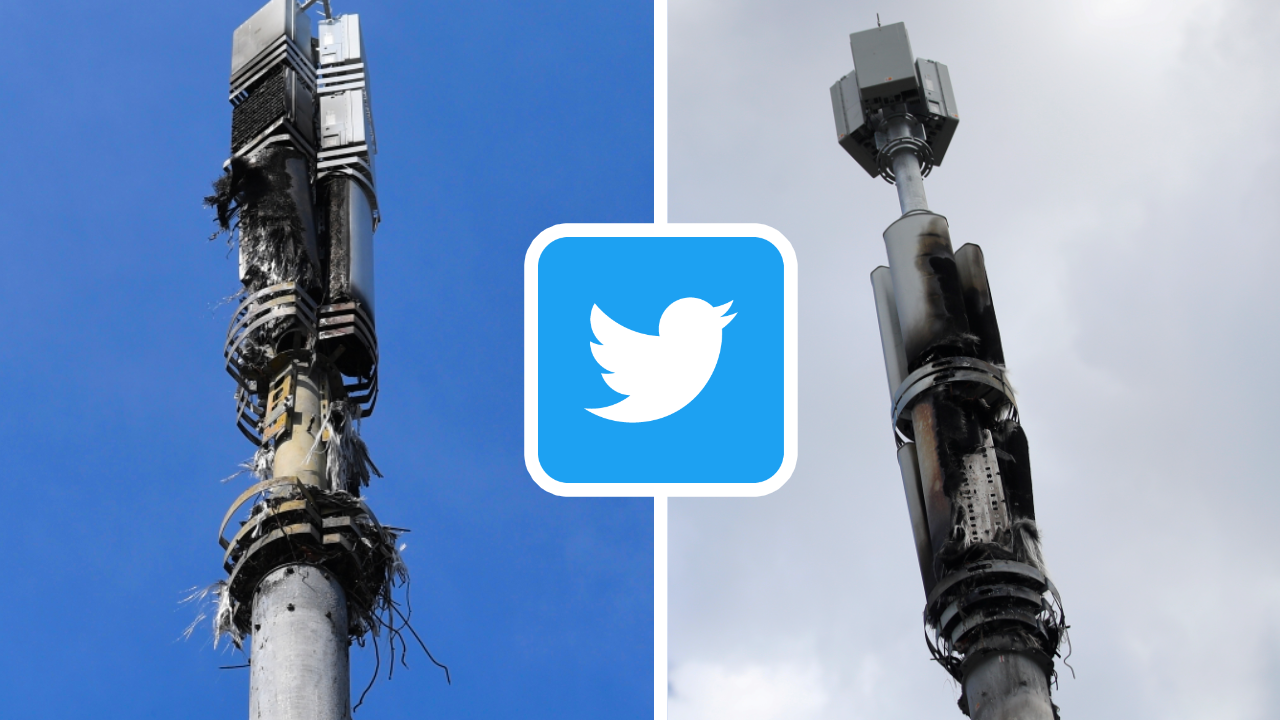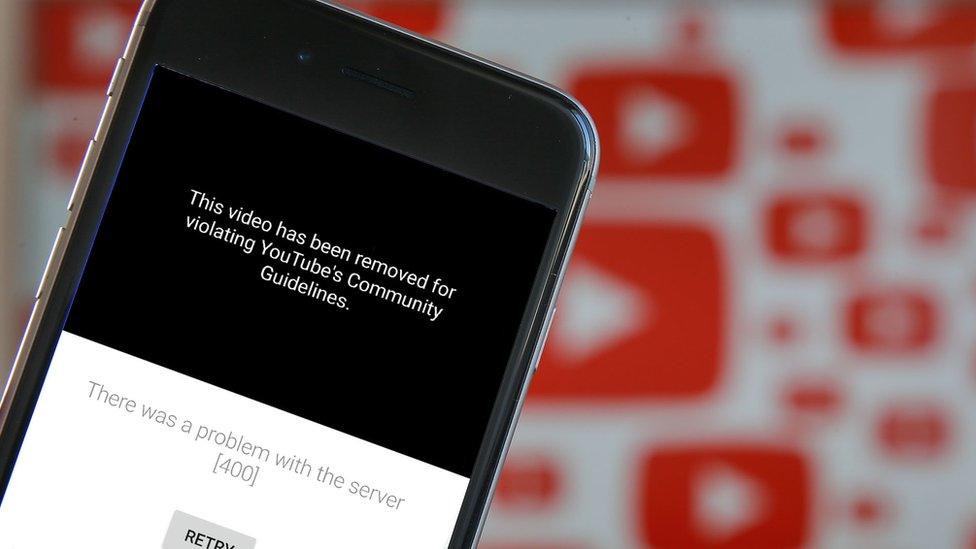Coronavirus: Twitter will label Covid-19 fake news
- Published

Some tweets will have labels that redirect users to facts about Covid-19
Twitter has started putting warning messages on tweets containing misleading information about Covid-19.
And it confirmed US President Donald Trump, who has previously suggested injecting disinfectants could help cure coronavirus, would be subject to the new rules.
But one expert fears moderators will be overwhelmed and asked how much notice people would take of the warnings.
Some may even see warnings on tweets as "a mark of pride", he suggested.
In a blog, external, Twitter said it wanted to "limit the spread of potentially harmful and misleading content" around the coronavirus.
In a tweet, external responding to questions about the changes, Twitter's head of site integrity, Yoel Roth, said the policy would "apply to anyone sharing misleading information that meets the requirement of our policy, including world leaders".
A link to a Twitter-curated page or external trusted source containing additional information will be added to offending tweets.
And in some cases, readers will be warned the tweet conflicts with expert opinion.

Some tweets will carry stronger warnings
Twitter is targeting claims:
confirmed to be false or misleading by experts such as public health authorities
in which the accuracy, truthfulness or credibility is contested or unknown
It said the new system would also apply to tweets sent before this week.
"Our teams are using and improving on internal systems to proactively monitor content related to Covid-19," it added.

LOCKDOWN UPDATE: What's changing, where?
SCHOOLS: When will children be returning?
EXERCISE: What are the guidelines on getting out?
THE R NUMBER: What it means and why it matters

But Dr Bernie Hogan, from the Oxford Internet Institute, said: "Cranks and trolls... often have deliberate disinformation campaigns in order to simply swamp moderators.
"The problem to me is that Trump and his ilk have done such a good job of labelling disagreement as fake news that I believe his supporters are likely to tune out these warnings.
"It might even be seen as a mark of pride that one's opinions are considered false by 'the establishment'."

Analysis
By Shayan Sardarizadeh
BBC Monitoring disinformation specialist
Much like other social networks, Twitter has struggled to control the flow of misinformation on its platform since the beginning of the coronavirus pandemic.
After tightening its policies against harmful content in March, the company says it has removed 1,100 misleading tweets and "challenged" more than 3.4 million accounts manipulating the conversation about Covid-19.
The new labelling system seems very similar to Facebook's programme for flagging misleading content, although Twitter will not be using information from independent fact-checkers to label content.
The challenge for technology giants is finding the balance between removing genuinely harmful misinformation and protecting their users' right to free speech.
This is not an easy balancing act.
Platforms face questions by politicians and members of the public if they do not take action against harmful misinformation and will similarly be subject to accusations of censorship if their actions are deemed to be too severe.

- Published23 April 2020

- Published8 May 2020
